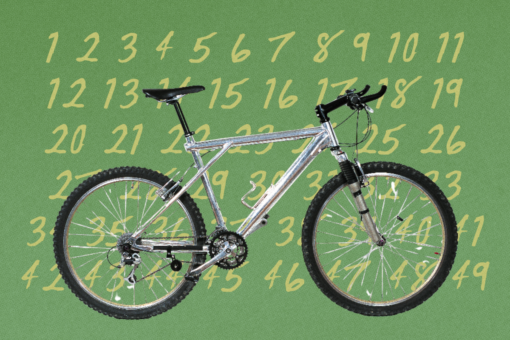The High Holidays are one of my favorite times of year. It’s not just that they typically tie to the start of autumn — undeniably the best season — but also thatI love the ritual of sitting in services among my family and community and reciting the same prayers each year. As I wrote last year, I’m a proud High Holiday Jew — as in I only go to synagogue three times a year (for Rosh Hashanah, Kol Nidre and Yom Kippur) — and that’s always felt right to me.
During the High Holiday services, congregations recite the Unetaneh Tokef prayer, a poem often considered to be the “pinnacle” of the Rosh Hashanah liturgy. It’s what I most associate with the holidays, particularly my dad belting the Hebrew version (b’rosh Hashanah yikatevun, uv yom tzom kippur) as we drive to services in my hometown. It’s about God’s yearly judgement that takes place during the Days of Awe, ultimately deciding who will be inscribed into the Book of Life — and live — and who will be inscribed into the Book of Death — and die.
On Rosh Hashanah it is inscribed,
And on Yom Kippur it is sealed.
How many shall pass away and how many shall be born,
Who shall live and who shall die,
Who shall reach the end of his days and who shall not,
Who shall perish by water and who by fire,
Who by sword and who by wild beast,
Who by famine and who by thirst,
Who by earthquake and who by plague…
It’s heavy stuff, to say the least. And while this prayer is always dark, there’s something about reading it in 2021 (er, 5782) that feels particularly ominous. More than ever, it feels like we are living this prayer quite literally. With the worsening climate crisis, the pandemic, the threat to reproductive freedoms, the daily disasters… it’s hard not to read the prayer and think of the very real-life examples of these scenarios that are killing people every day.
Just these past 10 days leading up to Rosh Hashanah, we can find horrific instances that parallel the prayer: Perish by water? There’s the historic flash flooding in the Northeast. Perish by fire? Wildfires raging in South Lake Tahoe and Greece. Perish by sword? Use sword as a stand-in for weapons and look to the U.S. withdrawal of Afghanistan. Perish by wild beast? An elderly man got eaten by a gator in New Orleans during Hurricane Ida. Perish by famine? See Madagascar right now, and the world’s “first climate change-induced famine.” Perish by thirst? The storm left Louisiana without clean water for days on end. Perish by earthquake? A magnitude 7.2 quake just hit Haiti, killing hundreds. Perish by plague? May I remind you of the coronavirus pandemic we’ve been living through… I can keep going, but for all our sakes, I won’t.
The prayer is dark. Yet, it’s not without hope. As Rabbi Dr. Reuven Hammer writes in My Jewish Learning, “this is not a day of suffering without hope. No matter what one has done, says the poet, the severe decree — the penalty of death — can be averted. Indeed, one need only follow the advice of the sages, ‘Three things cancel the decree, and they are prayer, charity, and repentance’ (Genesis Rabba 44:12).”
The prayer ends with how teshuvah, tefillah and tzedakah — repentance, prayer and righteous acts — avert “the severe decree,” aka being written in the Book of Death. Unfortunately, this is not literally true. We know that thoughts and prayers cannot save people from natural disasters or deadly viruses or having their rights taken away. If all it took to make these crises disappear were showing up in synagogue to say a few prayers, or calling up those you wronged over the past year to apologize, we would be living in a very different world.
And that’s what makes living through this moment so difficult: It’s easy to feel overwhelmed and helpless in the face of problems so much larger than any one individual’s actions.
But I’d like to focus on that last one: tzedakah, righteous acts or charity.
Through every terrible things that’s been happening — the Afghanistan refugee crisis, the wake of destruction Hurricane Ida has left in its path, the Texas abortion ban — we can turn to each other, to mutual aid, to charity. My social feeds have been full of places to donate to abortion funds (here’s one link!), to support the efforts of volunteers in Louisiana (like the Cajun Navy), and ways to help Afghan refugees (from volunteering to advocacy to donation). And then there are the stories of neighbors helping neighbors. Every day, despite the terror of the news, I am reminded of the good of people. I’m reminded of everyone from the poll workers to the rabbis offering support for those getting abortions to those organizing on the ground, taking the place of the institutions that have have failed us. There are neighbors cooking for each other in New Orleans and Americans taking Afghan refugees into their homes.
Do these small acts of charity and kindness balance out the catastrophic feeling that things just continue to get worse? I’m not sure. Nor am I sure what else 5782 will bring. I do know that for many of these problems, there are concrete solutions — fix our subways, New York City! Take the climate crisis seriously, politicians! Get vaccinated, everybody!!!! — and we need to pressure those in power to act quickly. But we also need to remember, when all else fails: We have each other.
This year, some of us will be back in synagogue for the High Holidays — with masks and vaccination mandates in place — and others will be tuning in once again from Zoom. Things do not feel back to “normal,” and they may never feel normal again, but despite it all, Jews all over the world will be going through our yearly rituals. Our prayers and our festive meals. Our moments spent with family, in person or from miles away. We’ll do it together, even as we are apart, because that’s the only way we know how to be. And we’ll wish each other a sweet new year — whether or not we believe that’s even possible — so we can start it off with the faintest sliver of hope in a dark, scary world.



